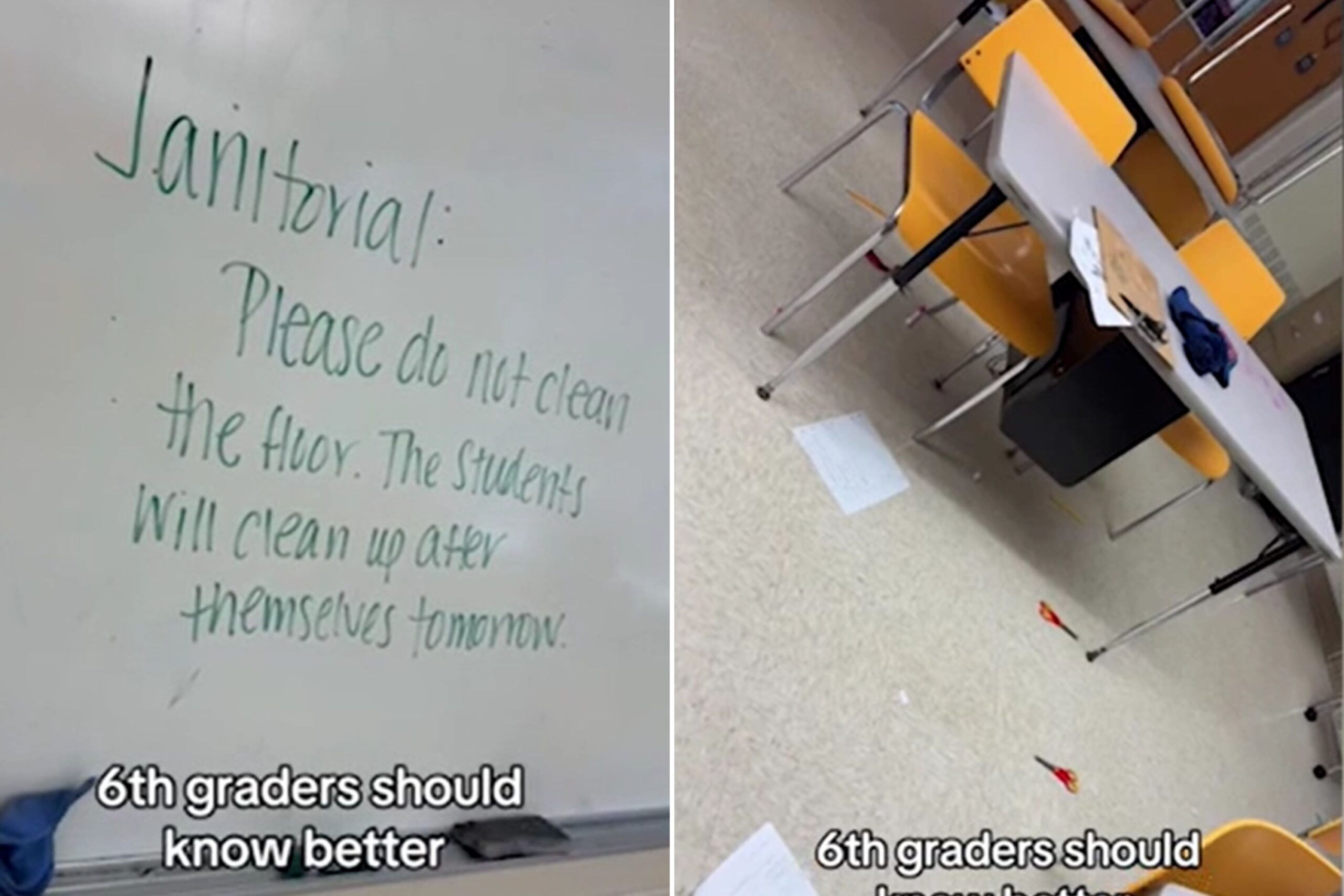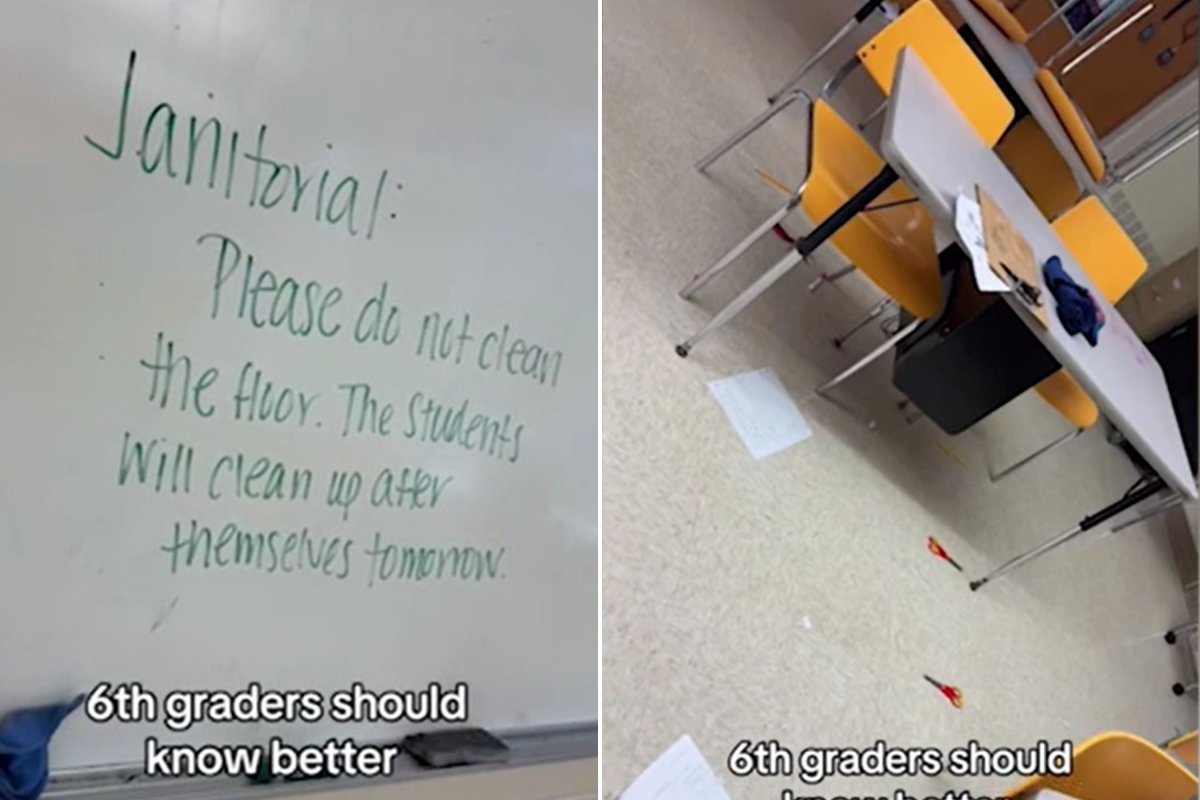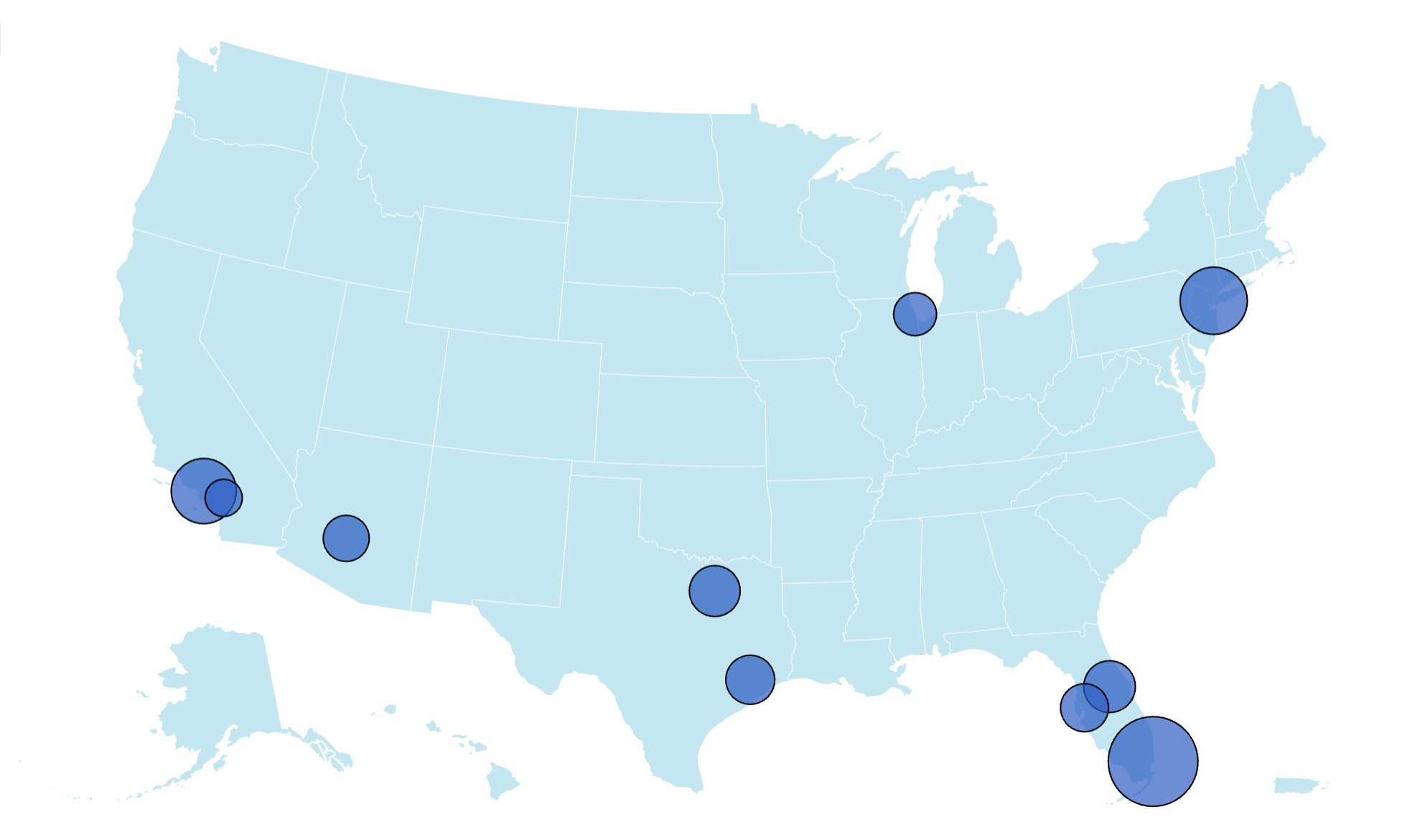
When her sixth-grade class left their classroom in disarray, Michigan schoolteacher Savanna Pavc took a stand, and has been widely cheered online for her actions.
In a video on TikTok with over 1.1 million views since being shared earlier this month, Pavc shared footage of the messy classroom, and the note she left on the whiteboard at the end of the day. It read: “Janitorial: Please do not clean the floor. The students will clean up after themselves tomorrow.” The caption said: “6th graders should know better.”
Pavc, 34, transitioned into education after a decade as an engineer, and regularly shares content about her experiences in the classroom.
“This was not the first week of school—they knew the expectations,” Pavc told Newsweek, revealing the reasons for her actions. “I think it’s important as teachers to show these life lessons and that they cannot just expect others to do everything for them.”
Despite the note, the janitor did clean the mess that night, but Pavc still addressed the issue with her students the next day.
“The custodian did not see my sign and she did sweep up all of the mess, but the next day we had a discussion about the mess and how disrespectful that was,” Pavc said.

@mrspavc/TikTok
There is evidence that learning to clean up, and particularly taking part in household chores, helps build a lasting sense of maturity, responsibility and self-reliance in children.
A study by Marty Rossmann, associate professor of family education at the University of Minnesota, analyzed long-term data from 84 individuals. This tracked their participation in household tasks at three key developmental stages—early childhood (ages 3 to 4), middle childhood (ages 9 to 10), and adolescence (ages 15 to 16)—and followed up with them in their mid-20s.
The study revealed that those who began helping with chores in early childhood were significantly more likely to grow into well-adjusted, successful adults. These early responsibilities appeared to instill essential life skills, fostering greater competence and independence over time.
The video struck a chord with viewers, particularly those in educational or custodial roles. Janitors, teachers, and parents flooded the comments, praising her decision to instill accountability in the young students.
“As a janitor, thank you! Can’t believe some of the mess these teachers let them get away with every day,” one commenter wrote. A fellow teacher said: “My students have to have the floor completely picked up before the end of the day or they lose fun privileges.”
Another janitor wrote: “We need more school staff like this. last week of school, I’ve had kids spit food on the floor so I can clean it up and no one said anything. gotta hold them accountable or adulthood is going to be rough.”
Pavc was surprised by the amount of responses on the video, but was pleased with the reaction. “I am actually quite relieved at a majority of the comments on the post commenting in support,” she said.
“I think that it is important as teachers to show these life lessons and that they cannot just expect others to do everything for them. Setting them up for success to be a valued functioning member of society is important,” Pavc added.





